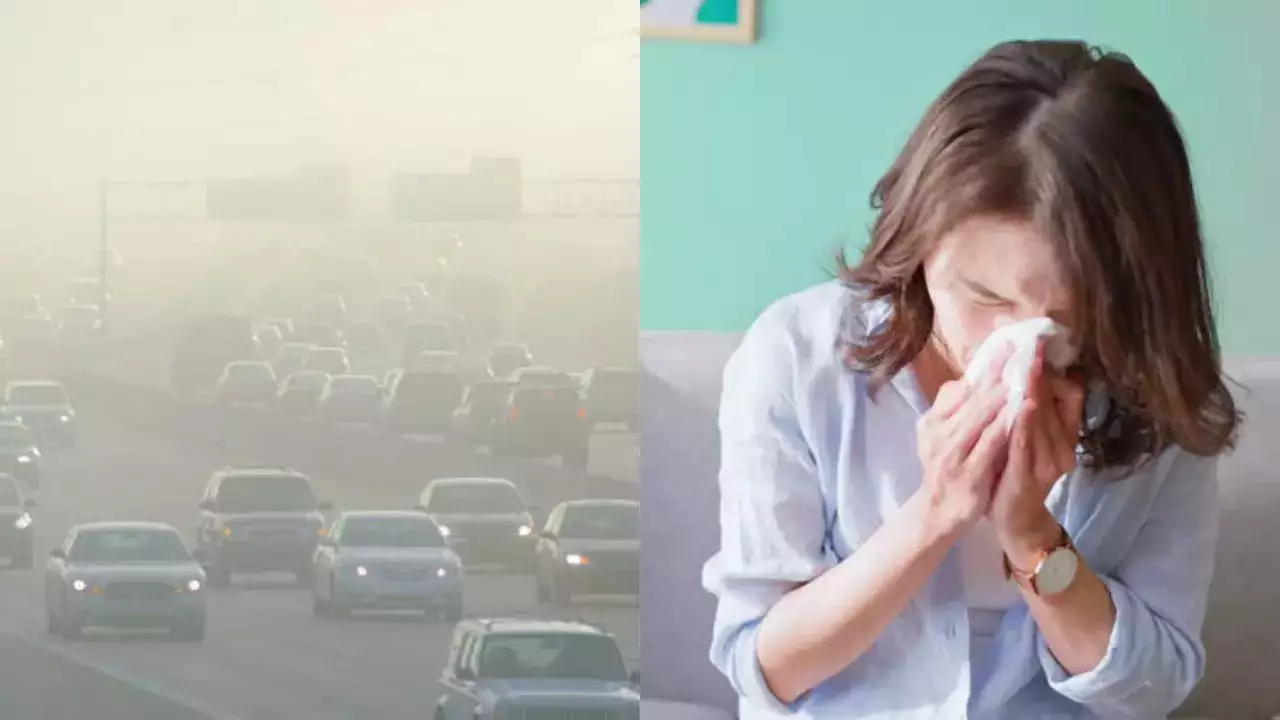
Smog And Winter: Allergy Triggers Delhi Residents Need To Watch Out (Image Credits: iStock)
A thick layer of smog blanketed parts of Delhi, Noida, Gurugram, and the wider National Capital Region (NCR), worsening the respiratory and allergy risks. Of the 36 monitoring stations in Delhi, 20 recorded air quality in the 'severe' category by 8 am. The toxic air can become life-threatening for vulnerable groups, including children, the elderly, and people with pre-existing respiratory or cardiac conditions.
Impact of Smog and Cold on Allergies
The combination of toxic smog and cold winter air creates an environment rife with allergy triggers. The dense smog, laden with harmful pollutants like PM2.5, nitrogen oxides, and carbon monoxide, irritates the respiratory tract and weakens the body's ability to fend off allergens. Simultaneously, cold air increases these effects, leading to a rise in allergy-related health issues.
Key Allergy Triggers for Delhi Residents
- PM2.5 and PM10:
Particulate matter, especially PM2.5, is a major trigger for respiratory allergies. These particles irritate the nasal passages and airways, causing sneezing, wheezing, and congestion. Long-term exposure can lead to chronic conditions like asthma and bronchitis.
- Pollen and Dust Mites:
While pollen levels are lower in winter, indoor allergens like dust mites become significant triggers as people spend more time indoors with closed windows and less ventilation.
- Mould Spores:
Moist conditions due to fog and dew create an ideal environment for mould growth, triggering allergies in sensitive individuals.
- Cold Air:
Inhalation of cold air can irritate the nasal passages, leading to a runny nose, sneezing, or even cold-induced asthma.
- Indoor Air Pollution:
Increased use of heaters, incense, and cooking stoves during winter months can worsen indoor air quality, further aggravating allergies.
A 2023 report by the Centre for Science and Environment (CSE) found that PM2.5 levels in Delhi often exceed the safe limit by 8-10 times during winter, significantly increasing the incidence of respiratory allergies. The cold air combined with pollution is a major trigger for allergic rhinitis, affecting nearly 30 per cent of urban populations. According to the World Health Organization (WHO), prolonged exposure to smog can lead to systemic inflammation, weakening immunity and increasing pre-existing allergies.
Symptoms to Watch Out For
Common symptoms caused by smog and cold-related allergy triggers include:
- Persistent sneezing and nasal congestion
- Itchy or watery eyes
- Dry or irritated throat
- Shortness of breath
- Chest tightness and wheezing
- Fatigue and general malaise
If these symptoms persist or worsen, particularly among children or people with pre-existing health conditions, seeking medical attention is advised.
Who is at Risk?
Certain groups are more vulnerable to these triggers:
- Children and Infants: Their developing respiratory systems are more susceptible to damage from pollutants.
- Elderly People: People over 60 have a weak immune system that increases the risk of allergies.
- Asthma and COPD Patients: Pre-existing respiratory conditions make exposure to smog and cold particularly dangerous.
- Outdoor Workers: Those who spend long hours outside are directly exposed to high pollution levels.
Preventive Measures
Delhi residents can take immediate steps to protect themselves:
- Monitor AQI: Keep track of daily air quality reports and avoid outdoor activities during severe pollution levels.
- Wear Protective Masks: High-quality masks, such as N95 or N99, can filter out particulate matter.
- Use Air Purifiers: Invest in HEPA-filter air purifiers for indoor spaces to reduce exposure to allergens.
- Improve Ventilation: Open windows during midday when pollution levels are relatively lower, and regularly clean ventilation systems.
- Boost Immunity: Include foods rich in antioxidants, like citrus fruits and leafy greens, to strengthen your body's defences.
- Maintain Hygiene: Dust and vacuum regularly to minimize indoor allergens like dust mites and mould.
- Stay Hydrated: Drinking warm fluids can help soothe irritated airways and flush out toxins.
Get Latest News Live on Times Now along with Breaking News and Top Headlines from Health and around the world.
